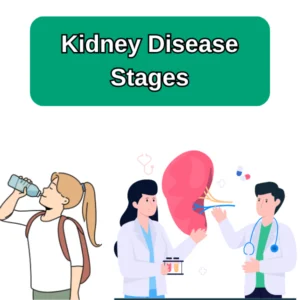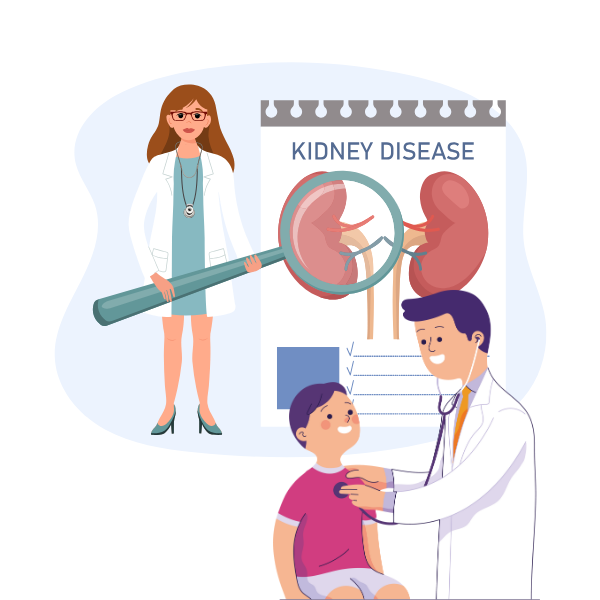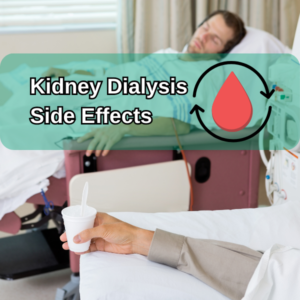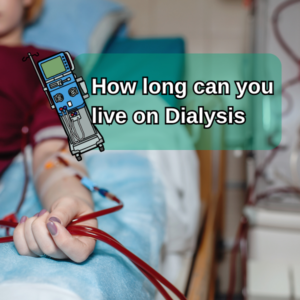+90 533 813 89 77
info@bookingforhealth.com

What are the Stages of Kidney Disease (CKD)
Gaining insight into the “Stages of Chronic Kidney Disease (CKD)1” is a crucial step in enhancing your overall understanding of health. Chronic Kidney Disease is a serious condition characterized by a gradual decline in kidney functions. Often, the symptoms may go unnoticed in the early stages, underscoring the significance of the topic of “kidney disease stages.”
Understanding the different stages of chronic kidney disease is crucial. It helps in preventing health problems and finding appropriate treatments. This knowledge also contributes to improving long-term health outcomes.
In this article, we will delve into the stages of chronic kidney disease, emphasizing the concept “stages of kidney disease” and “Chronic Kidney Disease.“

Stages of kidney disease treatment
Stage One: Starting Point
Stage 1 of kidney failure is characterized by mild kidney damage, and typically, there are no noticeable symptoms related to kidney failure. Protein leakage in the urine may be observed, although this symptom is not pronounced.
The glomerular filtration rate (GFR) ratio can be greater than 90, indicating that the kidneys are still effectively performing their functions. As a result, most individuals may not be aware that they have kidney failure at this stage, as they can generally continue their daily activities without significant hindrance.
Treatment may not be required at this stage, but regular monitoring and preventive measures are essential. During this phase, healthcare professionals carefully monitor the patient’s kidney health by tracking protein levels in the urine and assessing GFR ratios. This helps in detecting potential progression early and taking appropriate measures.
Especially for individuals at risk, preventive measures to maintain kidney health at this stage can be taken through healthy lifestyle choices and regular health check-ups. This is a critical step to enhance overall health and minimize the progression of kidney failure.
Stage Two: Setting Off
Stage 2 of Kidney Failure, also known as the second phase of chronic kidney disease (CKD), is characterized by mild kidney damage. At this stage, individuals often do not manifest noticeable symptoms of kidney failure. The glomerular filtration rate (GFR), a key indicator of kidney function, falls within the range of 60 to 89. While there is some impairment in kidney function, it is common for people not to experience overt signs of renal dysfunction during this stage.
Monitoring kidney health through regular assessments of GFR becomes crucial in Stage 2. This helps healthcare professionals track any potential progression in kidney damage and allows for timely interventions. Lifestyle adjustments and adherence to medical recommendations are particularly important at this stage to reduce the risk of advancing to more severe phases of kidney disease.
It’s important for individuals in Stage 2 to maintain open communication with their healthcare providers, undergo regular check-ups, and follow prescribed protocols for managing kidney health. Adopting a healthy lifestyle, including a well-balanced diet, staying hydrated, and engaging in regular physical activity, can contribute significantly to slowing down the progression of kidney damage and maintaining overall well-being. Awareness and proactive measures during Stage 2 are key to preserving kidney function and preventing further complications associated with chronic kidney disease.
Stage Three: In the Middle
In Stage 3 of kidney failure, there is moderate damage to the kidneys. The glomerular filtration rate (GFR) may fall within the range of 30-59. At this stage, symptoms of kidney failure may become apparent. The most commonly observed indications in Stage 3 kidney failure include swelling in the hands and feet, back pain, changes in urine output, high blood pressure, and anemia.
Moderate kidney damage in Stage 3 signifies a critical juncture in the progression of kidney failure. Individuals in this stage should be vigilant about monitoring symptoms and seek medical attention to manage the condition effectively. Early intervention and lifestyle adjustments can play a crucial role in slowing down the advancement of kidney failure and maintaining overall health.
It is imperative for those experiencing symptoms in Stage 3 of kidney failure to consult with healthcare professionals for a comprehensive assessment and personalized treatment plan. Regular check-ups, dietary modifications, and adherence to prescribed medications are integral components of managing kidney health at this stage.
Stage Four: Serious Matter
In Stage 4 of kidney failure, there is moderate to severe damage to the kidneys. Symptoms and issues observed in Stage 3 kidney failure may become more pronounced.
The glomerular filtration rate (GFR) ranges between 15-30. At this stage, careful attention to nutrition becomes crucial. Conducting necessary research for dialysis or kidney transplantation is advisable.
Symptoms and Challenges in Stage 4 Kidney Failure
As the kidneys undergo moderate to severe damage, symptoms such as fatigue, swelling in the legs and ankles (edema), and persistent itching may intensify. High blood pressure often persists or worsens, and there may be a noticeable decrease in urine output. Anemia and bone health issues could also become more prominent at this stage.
Dietary Considerations
Nutritional management becomes a key focus in Stage 4 Kidney Failure. A renal dietitian can assist in crafting a customized diet plan to address the specific needs of individuals at this stage. This typically involves controlling protein intake, limiting phosphorus and potassium consumption, and closely monitoring fluid intake. Adequate calorie intake and maintaining a healthy weight are essential aspects of dietary management.
Medical Interventions and Research
Given the severity of kidney damage in Stage 4, it is crucial to explore medical interventions such as dialysis or kidney transplantation. Dialysis helps in performing the crucial functions that the kidneys can no longer execute effectively, while transplantation offers a more permanent solution. Comprehensive research and consultations with healthcare professionals are highly beneficial in understanding the available options and making informed decisions.
Lifestyle Adjustments
Patients in Stage 4 Kidney Failure should actively engage in lifestyle adjustments. This includes adhering to prescribed medications, managing blood pressure, and staying vigilant about blood sugar levels, particularly if diabetes is a contributing factor. Regular exercise, within the limits set by healthcare providers, can aid in overall well-being.
Psychosocial Support
Coping with the challenges of Stage 4 Kidney Failure can be emotionally and mentally taxing. Seeking psychosocial support through support groups, counseling, or engaging with healthcare professionals experienced in managing chronic conditions is valuable. Emotional well-being is an integral part of the holistic approach to managing kidney failure.
Stage Five: Final Stop
In Stage 5 of Kidney Failure, there is severe damage to the kidneys, rendering them almost non-functional. The glomerular filtration rate (GFR) drops to less than 15, signifying a critical condition. During this phase, individuals often experience a range of symptoms, including itching, muscle cramps, nausea and vomiting, constant hunger, swelling in the hands and feet, back pain, breathing difficulties, and sleep problems.
Patients in Stage 5 Kidney Failure face significant challenges as their kidneys are unable to perform vital functions adequately. The GFR rate falling below 15 ml/minute indicates a critical decline in kidney function. The symptoms mentioned above can significantly impact the individual’s quality of life, making it essential for them to seek medical attention promptly.
Treatment Options for Stage 5 Kidney Failure:
Given the severity of Stage 5 Kidney Failure, patients are faced with crucial decisions to sustain life. The primary treatment options include dialysis or a kidney transplant. Dialysis involves using a machine to perform the functions of the kidneys, filtering and purifying the blood to remove waste and excess fluids. On the other hand, a kidney transplant offers a more permanent solution by replacing the damaged kidney with a healthy one from a donor.
Life with Stage 5 Kidney Failure:
Living with Stage 5 Kidney Failure requires careful management and adaptation to the challenges posed by the compromised kidney function. Patients may need to make significant lifestyle adjustments, adhere to a strict dietary regimen, and undergo regular medical monitoring. The decision between dialysis and kidney transplant depends on various factors, including the patient’s overall health, preferences, and the availability of suitable donors.
- https://www.ncbi.nlm.nih.gov/books/NBK535404/ ↩︎



